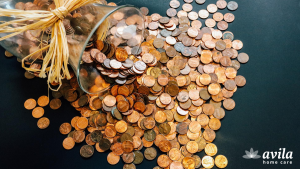Top COVID-19 Scams for the Elderly to Avoid
Unfortunately, in the midst of a global crisis caused by the novel coronavirus, many scammers have found an opportunity to target the elderly community. The home care professionals at Avila Home Care want you to stay proactive about protecting yourself from hackers, scammers and other threats. Here are a few of the top COVID-19 scams to look out for as well as tips for protecting yourself and your sensitive information.
Robocalls
HANG UP RIGHT AWAY! Scammers or scammy companies use illegal robocalls to profit from Coronavirus related fears posing as the IRS or Medicare. Even if you don’t say anything, or if they ask you if your name is “INSERT NAME”, and you respond “YES”- they can still use that to charge you money or take advantage of your identity in other ways. Visit the Federal Trade Commission’s website to hear scam calls.
Testing and Treatment Scams
DON’T ANSWER THE DOOR! Scammers are calling or knocking on doors in white lab coats or hazmat gear claiming to be with the Center for Disease Control and Prevention, selling fake at-home Coronavirus tests, fake cures, vaccines, and medical advice on unproven treatments.
Supply Scams
BE VERY CAREFUL WHERE YOU BUY FROM ONLINE! Scammers are creating fake shops, websites, social media accounts, and email addresses to sell medical supplies in high demand, like surgical masks. When you try to purchase supplies, they pocket the money.
Provider Scams
DO NOT PAY BILLS FROM SOURCES YOU DON’T KNOW. Scammers are contacting people by phone and email, pretending to be doctors and hospitals that have treated a friend or family member for COVID-19 and demanding payment.
Charity Scams
ONLY DONATE TO ESTABLISHED CHARITIES YOU HAVE HEARD OF WITH A GOOD REPUTATION. Scammers are soliciting donations for individuals, groups, and areas impacted by coronavirus.
Phishing Scams
DO NOT OPEN EMAILS YOU DON’T RECOGNIZE,OR ENTER IN PERSONAL IDENTIFICATION OR FINANCIAL INFORMATION! Scammers are sending emails posing as health officials, including the World Health Organization and Centers for Disease Control and Prevention, attempting to trick you into downloading malware or providing personal identification and financial information.
App Scams
DO NOT DOWNLOAD APPS YOU DON’T RECOGNIZE. Scammers are creating and controlling mobile apps used to track the spread of COVID-19. If used, these apps insert malware on your device that steals your personal and financial information.
Compassion & Romance Scams
AVOID FRIEND OR ROMANTIC SOLICITATIONS. Scammers will use this opportunity to prey on your vulnerability while you are contained and isolated in your home, developing a friendship or romantic relationship with you to gain your trust and obtain your personal and financial information.
Tips for Protecting Yourself From Scams
- Do not respond to calls or texts from unknown numbers, or any others that appear suspicious.
- Never share your personal or financial information via email, text messages, or phone.
- Be cautious if you’re being pressured to share information or make payments immediately.
- Scammers often spoof phone numbers to trick you into answering.
- Government agencies will never call you to ask for personal information or money.
- Do not click links in text messages. If a friend sends you a text with a suspicious link, call them to make sure they weren’t hacked.
- Always check on a charity (by calling or looking at its actual website) before donating.
Speak to a Dedicated Home Care Professional at Avila Home Care
While the compassionate team at Avila Home Care wants to ensure you and your loved one stay healthy during this global pandemic, we also want to make sure you stay safe and that your assets and personal information are not stolen, exploited or shared via scammers taking advantage of current events. To speak to an Avila Home Care specialist, contact our offices today.
Content in this article was sourced from AxisCare. To read the full article, click here.
Budgeting Basics for the Best Aging in Place Experience
Even if you are a senior, it never hurts to be mindful of your finances and stick to a proper budget plan that works for you. These tips are especially helpful if you are retired and no longer have a steady source of income. Here, the home care professionals at Avila Home Care detail simple…
An 80-year-old doctor and longevity expert shares his 5 habits for a longer life: ‘It’s never too late to start’
“At 80, I’ve outlived the average American’s life expectancy. Having spent my 55-year career as a doctor researching longevity, this is what I tell my patients when they ask about my secrets to a longer, healthier life.” Read the full article in CNBC.
Meet Tamara Price,
Registered Nurse at Avila Home Care!
Tamara Price, RN, joined the Avila Home Care team in 2018 with over 12 years of experience working as a Caregiver and a Nurse. “My heart leads when providing care to others. Medical knowledge, training and experience are of course foundational assets to our line of work, but providing care from the heart makes…


